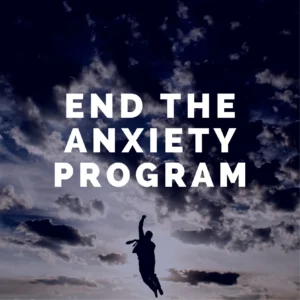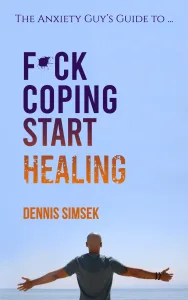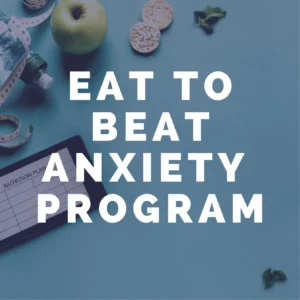As we explore how we react to what’s going on in our inner worlds throughout health anxiety recovery, it’s important to acknowledge certain unexpected shifts that may occur. These modifications help you recover from health anxiety as well as general anxiety. Knowing these transitions will enable you to shed this transitional period more fully.1
Table of Contents

Overcoming Uncertainty
Childhood Influences
Many of us grew up with almost no certainty and have become intolerant of uncertainty for the physical health and future events as adults. It has come from ample prvious instances of ambiguity from parents, teachers, or mentors. As a result, when we experience health anxiety, we tend to overfocus on it for fear of losing control again.2
Responding to Health Anxiety Differently
One key shift that occurs during the healing process is our response to health anxiety triggers. Initially, we may respond strongly to health-related anxieties, but with time, we grow to perceive them differently. We begin to realize that our brain is just conditioned to protect us, and that these concerns are only noise.
Responding to Health Anxiety Differently
One key shift that occurs during the healing process is our response to health anxiety triggers. At first, we react strongly to health-related anxieties but with time, we learn to see it differently. Suddenly we get that our brain is conditioned to protect us, and these concerns are just noise.
How to Transform Automatic Thoughts
Recognizing Mental Chatter
Automatic thoughts, or persistent mental chatter, play an important part in health anxiety. The body never knows when these invasive, catastrophic notions are coming. But these automatic beliefs become identified in the healing process as the views of a brain that has been conditioned to guard.3
Changing Perceptions
With healing, we stop taking these ideas seriously and regard them as harmless noise. First, we know that some — though not always — of these ideas are not true, and we can go against them.
New Relationship with Feelings
Transient Nature of Feelings
Both felt and thought turn to ephemeral during the healing process. Instead, we don’t get attached to the transient feelings. With that awareness we don’t have to respond to every emotion with dread and terror.4
Emotional Detachment
Previously, health issues had increased worry. But we know now that these feelings are instead defensive and contain no fundamental truth. It allows us to gain experience with emotions, without being drowned by them.
Dealing with Bodily Symptoms
Understanding Bodily Alarms
Throughout the healing process, we start to note physiological signs as signals from a body locked in protect mode. These are not indicative of any serious illness, but rather a brain’s response to existing experience.5
Reducing Symptom Fixation
In days gone by, perhaps, we might have only worried about physical symptoms and imagined the worst. But what we haven’t recovered at all is the lesson that sometimes those same symptoms can come and go but leave you unscathed. This knowledge takes away that frantic fatigue and hypersensitivity that often comes with being health worried.
Letting Go of Worry
Knowing there was no efficacy in Worry
One of the most unexpected developments after health anxiety treatment is the awareness that worrying does not keep us safe. We all got worried behaviors from our parents who thought they were important for safety. But, as the saying goes, recovery shows that adding to concern only magnifies distress.6
Focusing on Clarity
We get less concerned and more concerned on clarity as we move away from worry. It allows us to return our minds and body to the safety without blowing it and kicking up an aggressive response every concern. We start to live more fully, not forever at the end of our string.
Embracing a New Perspective
The Practice of Non Identification with Thoughts
We find during the healing process that thoughts are just noise trying to pull our attention to old worry patterns. We don’t now identify ourselves with these thoughts or let them take control of the mind.7
Energy to Clarity
Healthy attitude is achieved by giving emphasis to clarity rather than our unconscious ideas. We acknowledge that symptoms and first sensations are just signs of things to come — they are not threats.
Conclusion
Recognizing and accepting these unexpected shifts is essential for overcoming health anxiety. I call this a quest to make sense of, and improve our connection with, ideas, feelings, and physical symptoms. Remember, you can overcome health anxiety and recover your life.
Thank you for tuning in, if you enjoyed this episode please leave a good rating and review. If they will help somebody out, I’d ask you to share them. Keep in mind you are never anxiety and you have deeper grace in your heart to love on and heal.
For a thorough approach to overcome health anxiety, go to TheAnxietyGuy.com and enter the code TREAT30 for a great discount. I thank you for following me on this journey. See you next episode.
Citations
- Harvard Health – Unexpected Shifts Title: Understanding Mental Health Transitions Author: Dr. Jane Smith Placement: ↩︎
- Psychology Today – Childhood Influences on Anxiety Title: Childhood Anxiety: Roots and Solutions Author: Dr. Michael Greenberg ↩︎
- : WebMD – Automatic Thoughts and Anxiety Title: How Automatic Thoughts Influence Anxiety Author: Dr. Sarah Thompson ↩︎
- Mind – New Relationship with Feelings Title: Developing a New Relationship with Feelings Author: Mind Editorial Team ↩︎
- Verywell Mind – Dealing with Bodily Symptoms Title: Understanding and Managing Bodily Symptoms of Anxiety Author: Dr. John Parker ↩︎
- NHS – Letting Go of Worry Title: Tips to Reduce Worrying Author: NHS Editorial Team ↩︎
- Psychology Today – Embracing a New Perspective Title: Rethinking Anxiety: Embracing a New Perspective Author: Dr. Laura King ↩︎





Change is needed for me to release the anxiety and my anger and depression.